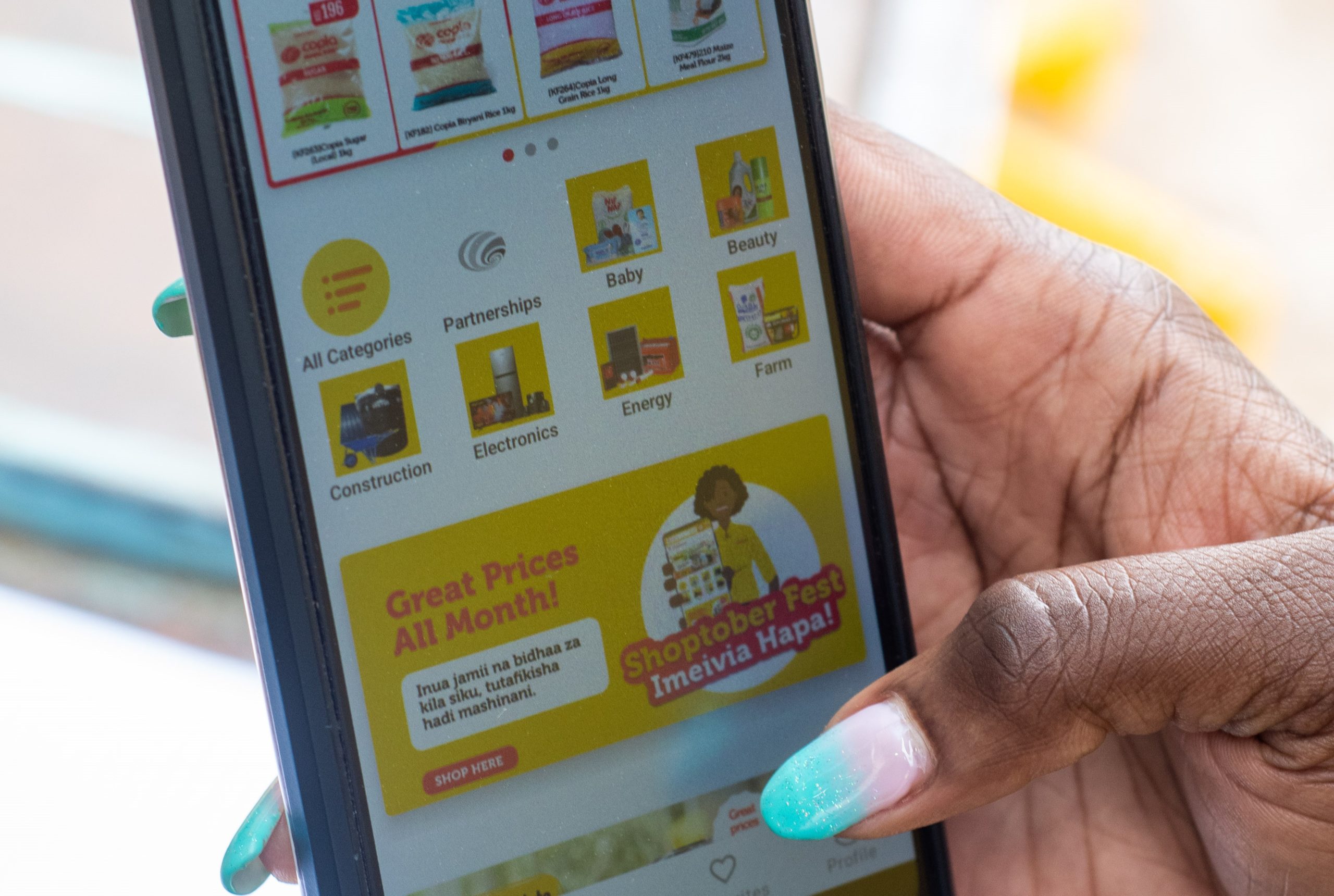Copia Global, the Kenyan e-commerce startup that has raised $107m in venture funding across seven funding rounds, is launching a campaign to drive more sales through its mobile app. The company, which currently collects and delivers customer orders through 50,000 agents, is taking advantage of the fact that most low- and medium-income Kenyans now have smartphones.
“We started with an offline experience because our customers were offline, but now we can fully focus on transitioning all to our app,” said Tim Steel, CEO of Copia, in a statement seen by TechCabal.
Currently, most of Copia’s two million customers place orders for household items, electronics, or packaged foodstuff in person at neighbourhood shops, via USSD, or even call in orders (via phone) to their local shopkeepers. Copia’s new campaign will focus on helping these users transition to placing orders on its mobile app. “The goal is increased direct engagement with our customers so that they can see all our products and the pricing which is difficult when you are in an offline environment,” Steel told TechCabal on a call.
The company launched a similar campaign last year to help agents use smartphones more, leading to an increase in the use of its agent marketplace app from 5% to 80%. A key driver of success was that Copia offered smartphone financing to its agent network. It will offer the same smartphone financing facility to allow current offline and new customers to purchase smartphones (and higher ticket items) and pay in bits.
Founded in 2013 by Tracey Turner and Jonathan Lewis, Copia relies on a network of 50,000 street shops in small towns and semi-rural areas in Kenya to collect and deliver orders. Increasing app usage will change this model as customers rely less on nearby shops, which double as Copia agents to place orders. These shops will still serve as pickup locations, and shopkeepers will still earn commissions from app orders.
Copia says it can better control the shopping experience, have complete visibility over how customers place orders, and even begin to customise offerings based on a customer’s historical preferences.
Kenya’s smartphone usage has increased
More Kenyans now own and use smartphones than ever, and mobile internet packages’ costs have fallen steadily since the early 2010s. A Kantar East Africa study commissioned by Copia said 73% of middle and low-income consumers in Kenya now own smartphones. Per the report, half of Copia customers who currently own smartphones use the internet at least once weekly. Given current trends, more Kenyans will transition to smartphones as prices fall and smartphone financing becomes more accessible.
“Copia is usually the first commerce app our consumers experience, so we have a real responsibility to bring the world to their fingertips,” said Tim Steel. It’s an admission that Copia’s target demographic (rural and peri-urban) are not digital natives and may have difficulty weaning themselves off agents.
In January 2022, Copia announced a $50 million series C round. This year, the company has cut at least 700 internal roles, in addition to shuttering a recently launched Ugandan business. In addition to its e-commerce business, Copia runs several brand product lines and operates two facilities that produce and package sugar and rice.















